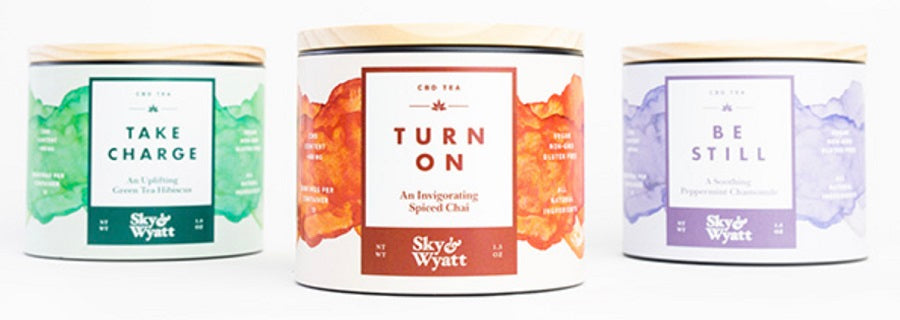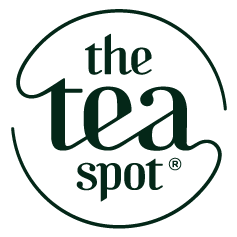by Maria Uspenski for Global Retail Brands
How To Extend Your Product Line To The Hot Trend Of Premium Tea
As wellness and organic categories continue to trend upward, many brands (and even smaller businesses which aren’t product-focused) are extending their offerings to appeal to sustainable and healthy lifestyles. Tea can be presented as an attractive complement to many brands, and is a natural choice for companies looking to promote well-being.
Specialty tea is booming with premium tea products being one of the key emerging trends in the global tea market. In retail, wellness tea sales are up 5.8 percent while premium green and white tea sales are up more than 33.3 percent in the bagged and boxed tea categories, according to SPINSscan Data, which tracks total tea sales across all SPINS-tracked retail channels in the U.S.
Wide varieties of brands – ranging from coffee roasters, spice, and gourmet food stores, to holistic wellness practitioners, spas, yoga studios, hotels, restaurants, major retail brands, and even airlines – have created their own private label tea lines with OEM partners. Private label tea is sourced, blended and packaged by a co-packer and sold at wholesale prices to another company. This company then sells the tea under their own brand. Private label has grown rapidly in recent years as more businesses recognize the market opportunities, reasonable costs and profit margins in tea – which can be twice as high as the margins on coffee.
Tips for Selecting a Private Label Tea Partner
Here are some key points to consider in the process of selecting an OEM tea partner and setting up your private label with them:
• Do you want a line of teas, or just one tea product? Do you wish to choose an existing tea blend you’ve tried, or do you wish to create your own unique tea concept?
• Do you want a pure single-estate tea, an iced tea blend, a classic blend like a breakfast tea or earl grey, a traditional cultural blend like chai or Moroccan mint? Or are you planning to do a functional tea such as a detox, energy, sleepy, matcha or turmeric blend?
• Does your tea vision concept include functional ingredients or special tea types? Are you looking to use microgreens, turmeric, etc. in your tea blend? Are you planning to have flavoring added to your tea?
• Is your OEM partner facility SQF and/or HACCP certified (Hazard Analysis and Critical Control Points)? Will you want your product to be certified organic, kosher, non-GMO or
gluten-free?
• What is your desired cost point? Will your tea be a giveaway, or a product you intend to commercialize? What minimum order quantity are you prepared to take on? Do you plan to reorder on an ongoing basis, or will this be a one-time offering?
• What form factor will you choose: loose leaf tea, pyramid sachets, paper tea bags? Do you need your sachets individually overwrapped to maintain fresh single-servings? Will you require retail-ready packaging? Will you want to market branded tea accessories with your tea?
A Private Label Partner Can Bring Your Tea Product to Fruition
The advantages to doing a private label tea product with an OEM partner are that start-up costs, including staffing and lead times, are greatly reduced or even eliminated. A brand is what distinctively differentiates a business in the marketplace. Doing private label allows a business to focus entirely on building and marketing their brand, without the expense and distractions of setting up a new line of labor-intensive production, making the immediate profit returns greater. Taking the OEM route is also a good way to initially test the market with a tea product, even if a business decides to take their tea manufacture and future developments in-house sometime in the future. Before making
the significant expenditures required to set up a tea line, an OEM partner can execute the R&D to formulate a company’s vision for their tea line. A brand may not have tea and herbal experts on staff, but they may know that their requirement is, for example, to help people energize, or get into a restful state of relaxation, or satisfy hunger cravings, or whatever other functional requirement they may be looking to support with a tea blend. The proper private label partner will have the skills to bring that vision to fruition.
Through economies of scale an established OEM partner can provide competitive wholesale tea pricing, R&D costs, and lead-times that will be unmatched for a new brand trying to enter the market from scratch – most notably in raw material sourcing, R&D skills, production, packaging, and supply chain management. By letting an OEM partner help bring your product to life, clients get to benefit from their partner’s experience, efficiencies of operations, sourcing connections (not to mention buying power at scale), and baseline knowledge of the industry and trends.
In sum, OEM clients get to benefit from all their OEM partner’s past experiences, successes and failures alike, so that they can gain the most from their tea product launch right out of the gate, without the learning curve of a tea industry newbie. There are many established OEM tea companies that can easily help you along this complicated journey so that you can successfully execute your go-to-market strategy. The tea market is wide open for new products, new voices, and new ways to promote health and wellness to the mass market in an ultimately simple form – tea.

Featuring our OEM tea client, Sky & Wyatt
For more information, please browse the Private Label Tea and Custom Teaware info available on our wholesale site wholesale.theteaspot.com. Or reach out to our wholesale sales team at sales@theteaspot.com.
